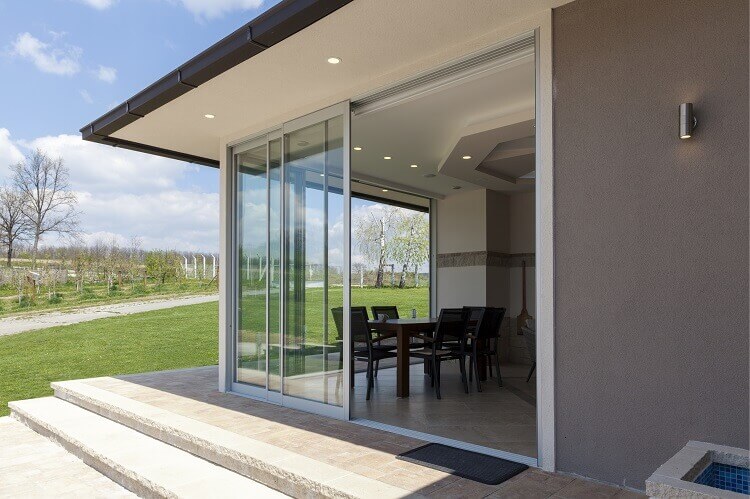Content Attributes
Searching for the perfect house or room for rent is a challenging job that requires plenty of time, energy, and effort. However, once you’ve found the rental house or room you see yourself living in, there’s an equally challenging task ahead of you that needs to be taken care of: gathering a bunch of documents that your landlord needs from you.
Why do you need to share so much paperwork when there’s no guarantee that your application will be shortlisted? Because landlords want to make entirely sure that you are the ideal tenant they’ve been looking for! With frauds and scams dominating the rental market, you can never be too careful. Also, remember that the market’s very competitive, so don’t wait until the last minute to gather your documents. Preparation is essential here, so ensure that you have the following 10 documents before you initiate the application process:
Source: Pexels
Take copies of pay stubs
You may be curious to know why you need to share paystubs with your potential landlord. Let’s try to think of the situation from their perspective. You say you earn a certain amount of income per month. Do you expect them to take your word for it? No way! They need to verify whether what you say you earn is, in fact, what’s on paper.
Besides, landlords have specific income requirements from potential tenants. They expect you to make at least three times the rent they’ve set. Also, according to the 30 percent guideline, you should be spending no more than 30 percent of your salary on rent. Therefore, if your income doesn’t meet these conditions, don’t expect to be shortlisted.
In a word, remember to keep at least two to three copies of your pay stubs with you just in case they’re required.
Get hold of bank statements
You could also share your bank statements to show your prospective landlord that your income is deposited into your bank account monthly. This will ease any worries they may have about your ability to earn a stable income.
It might be wise to get hold of two months’ worth of your bank statements and circle the transactions that show the deposit of your monthly income to save your landlord the time and trouble of having to browse through endless payment details.
Get proof of identity
Yet another way of identifying whether you’re you is through photo identification. When you attend a tour of an apartment or house or proceed to fill out an application form, remember to carry your driver’s license with you. In case you don’t have one, other IDs that will work are a company identification card, a state ID, or a passport.
Find time to get paper copies of your ID made. Additionally, it’ll be helpful to take a photo or get your ID scanned and keep a digital copy handy, should you find it difficult to get copies. Whatever document copies you may have with you, be sure to always carry the original with you.
Acquire your credit report
One of the most sensible things you can do before you proceed with the rental application process is ensure that you request all three credit bureaus (Equifax, Experian, and TransUnion) to share your credit report with you. Check your credit score and give the report a thorough reading for discrepancies. Point them out and fix them before your landlord gets their hands on it while carrying out a credit check.
We’d also like to suggest you check with your landlord while touring the apartment or house, their credit score requirements from potential tenants. You’ll get to know immediately whether you’re a fit, and if you’re not, you can move on to greener pastures.
In the end, if your credit report includes payment issues or debts, it might be wise to be straightforward with your landlord and explain the reasons for the issues. You might become a more attractive candidate because of your honesty!
Request reference letters from previous landlords
Reference letters from previous landlords are an excellent way to convince your potential landlord of your soundness as a tenant, both financially and character-wise.
So, request your previous landlord for a recommendation letter highlighting facts about your payment abilities and behavior. That should do the trick.
Gather your rental history information
Landlords will ask for your rental history so that they can get an idea of your stability as a tenant. You might encounter problems if your record contains too many past movements.
Your rental history should typically contain a list of all the houses or apartments you’ve rented in the past and other details such as the dates you’ve lived in these places, landlord contact information, and reasons for moving out.
Finally, a quick and easy way to ensure that you don’t have to search for this information every time you apply for a rental is to prepare a rental resume containing the information mentioned in the previous paragraph. You can save a lot of time and energy.
Request professional and personal references
Apart from landlord references, your current landlord will ask for professional and personal references. So, think about who you’d like to include in your list, and be sure to check if they’re okay with it. Getting calls out of the blue from strangers isn’t something people appreciate, so keep them informed once you get their approval.
As far as professional references go, it could be anybody from work. For personal connections, it could be friends, family, and acquaintances. Just make sure that your contacts are people who are mature and experienced enough to be trusted and can vouch for you.
Put together your employment history
Since you’ll be applying to multiple rental houses, it makes sense to create a brief resume that contains details of your current job and some other places you’ve worked in earlier. This will comprise your employment history, and your potential landlord would want to look through it.
It’s not too difficult to guess why employment details are so important to landlords. As always, they want to ensure that you have a steady income, so if you’ve been at a job for at least five years, it guarantees your financial stability and appeals to the landlord. On the other hand, if you’ve skipped jobs every few months, you know where you stand, financially and in the eyes of the landlord.
Gather your pet details
If you have a pet, you’ll be looking for pet-friendly rental houses or rooms. Remember that in such cases, landlords while listing their rental house will ask for your pet details. Also, there will be restrictions on the following:
- Number of pets
- Pet types
- Pet size and weight
Keep documents such as pet recommendations and vaccination records ready because you’ll be asked to share them. The more documents you have, the more you can prove to your landlord that you’re a responsible pet parent with a lovable and harmless fur baby.
Research state laws to know if a pet security deposit is charged with the security deposit or is a separate fee, and the terms and conditions for getting it back once you move out.
Keep your checkbook with you
Keep your checkbook with you for two reasons: one, because you need to pay an application fee while applying for a rental property, and two, if your application goes through, you can use it to sign a check for the security deposit. You’ll also need to pay rent for the first and maybe the last month.
Typically, rental application fees range from $35 to $75 for every potential tenant. The fees are used for background and credit checks for tenants and are primarily non-refundable.
Ready and raring to go? We hope so! We understand that the process of collecting the detailed paperwork might seem exhausting and painful, but remember you’re saving a lot of time and unwanted effort. Rather than finding your ideal rental house or room and struggling to put the documents together, strike while the iron’s hot! You might be lucky enough to find what you’re looking for even before you know it!



